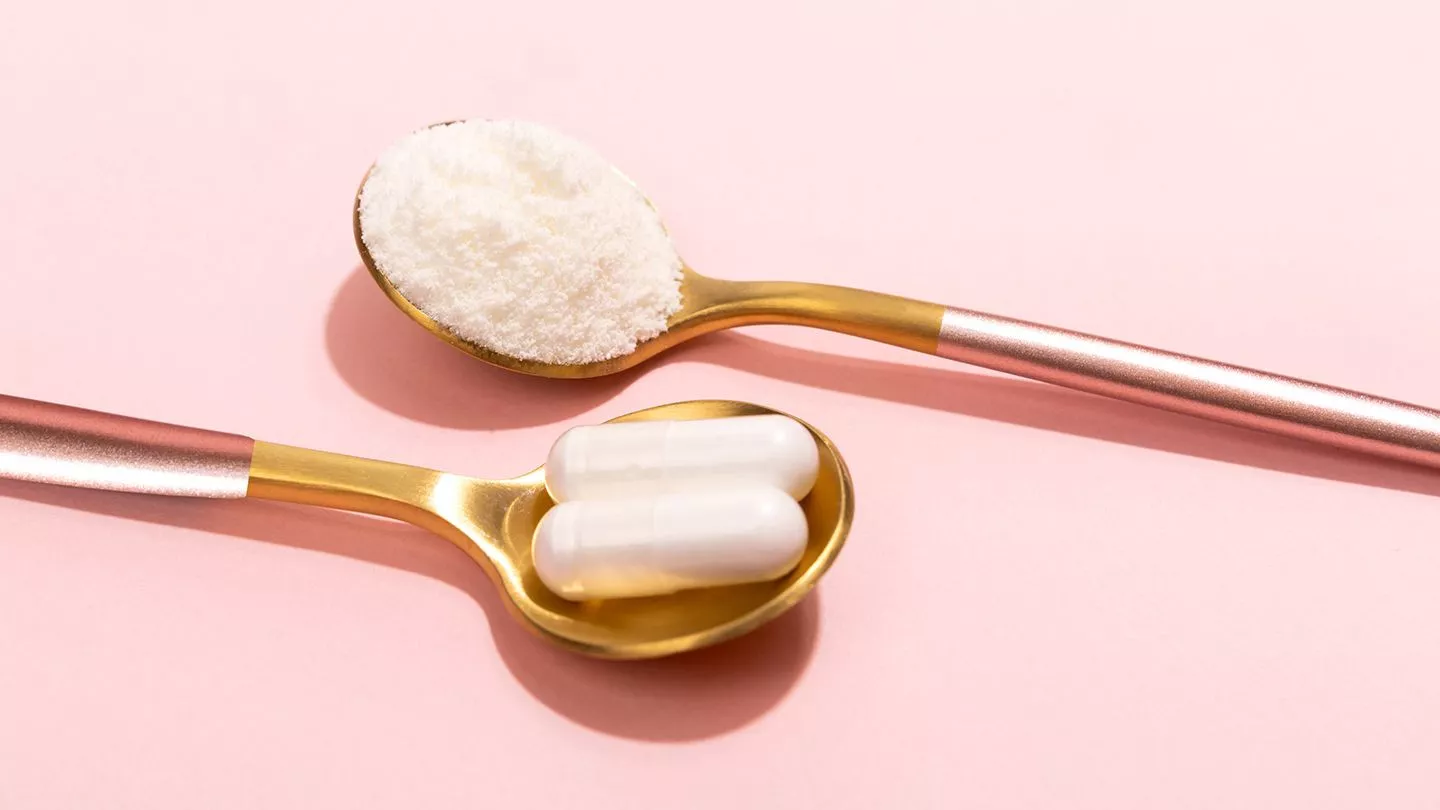Collagen is the foundation of healthy skin, providing structure, elasticity, and resilience.It’s the protein powerhouse behind not just your skin but also your hair, nails, and connective tissue. However, starting in your 20s, collagen production naturally declines by about 1% annually.

Stocksy
Factors like UV exposure, smoking, poor diet, and pollution accelerate this process, leading to wrinkles, fine lines, and sagging. Preserving collagen is key to maintaining a youthful complexion.
Below, find 9 dermatologist-approved strategies for safeguarding your skin’s collagen.
1. Use a moisturizer with collagen
While collagen molecules are too large to deeply penetrate the skin, moisturizers with collagen help hydrate and strengthen the skin barrier. These creams support your skin’s natural collagen reserves and prevent further breakdown. Look for formulations that focus on preserving collagen rather than promising to replace it, as topical applications cannot deliver new collagen.
2. Invest in microneedling treatments
Microneedling is a go-to treatment for stimulating collagen production. It creates tiny injuries in the skin, prompting the body’s natural healing process to boost collagen and elastin.Microneedling has several benefits including improving texture, reducing wrinkles, and minimizing scars. Results typically appear a few weeks post-treatment and continue to enhance over time. For best results, consider multiple sessions and periodic maintenance.
3. Incorporate retinoids into your skincare routine
Retinoids, derived from vitamin A, are powerful collagen stimulators. When applied topically, they encourage collagen production and accelerate skin cell turnover. Consider retinoids over retinol because they are already active, eliminating the need for conversion. Alternatively, bakuchiol, a plant-based ingredient, offers a gentler option for those with sensitive skin.
4. Try laser treatments
Laser therapies can effectively boost collagen levels while improving skin tone and texture. Fractional and non-ablative lasers are particularly versatile and suitable for all skin types. However, consult a professional to tailor the treatment to your unique skin needs for the best results.
5. Explore radiofrequency treatments
Radiofrequency energy penetrates deep into the skin, heating it to stimulate collagen and elastin production. The result? Firmer, smoother skin with reduced wrinkles and improved elasticity. These treatments are appreciated for their visible results and minimal downtime, making them a popular choice for enhancing overall skin health.
6. Add vitamin C to your routine
Vitamin C is a crucial player in collagen production. Applying it topically not only stimulates collagen but also protects skin from free radicals that break it down. This antioxidant powerhouse reduces fine lines, wrinkles, and dark spots. Consistent use over three months yields noticeable improvements.
7. Opt for a chemical peel
Chemical peels containing glycolic or lactic acid exfoliate the skin, promoting cell turnover and protecting existing collagen. These alpha hydroxy acids (AHAs) also stimulate new collagen production, leaving your skin smoother and more radiant.
8. Apply sunscreen daily
Daily sunscreen use is one of the simplest yet most effective ways to preserve collagen. UV rays are a major culprit in collagen degradation, so a broad-spectrum SPF 30 or higher is essential. Look for sunscreens with zinc oxide, titanium dioxide, and antioxidants like vitamin E or niacinamide for added protection.
9. Focus on a collagen-friendly diet

Collagen-rich foods like lean meats, fish, and legumes provide essential amino acids for collagen synthesis. Additionally, antioxidant-rich foods like nuts and green tea help combat free radicals that break down collagen. A protein-sufficient diet is crucial to support overall skin health.









COMMENTS
Comments are moderated and generally will be posted if they are on-topic and not abusive.
For more information, please see our Comments FAQ